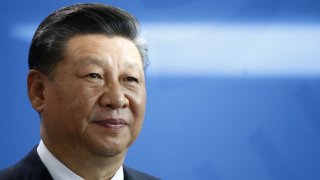How China is Winning the Solomon Islands
Since 2019, Beijing has spent a considerable amount of money and effort setting up its position in the Solomon Islands and openly assisting in the crushing of dissent.
Another thing to watch is that the national government has until the end of the year to set up an assembly to consider revising the constitution. Then, if the pro-PRC national government can get thirty-three of the fifty members to support it, it can change the constitution, in which case all bets and nominal legal restraints are off.
Apart from being a tragedy for the people of the Solomons, it would mean that another strategically vital country, which played an important role in World War II, is firmly under Beijing’s control.
What is the United States Doing?
Recently, Secretary Blinken described the approach in the Pacific Islands as: “We’re not asking you to choose, we want to give you a better choice.” However, it is very unclear what choice is being offered at all. From the point of view of a member from Malaita about to make their choice for premier, the United States is MIA.
Often in the Solomons, the United States defers to Australia. So, what is Australia doing? Canberra is warmly welcoming the new national government. As one Australian expert told Australian Broadcasting: “[Manele] will definitely lower the temperature and maybe even open the possibility for Australia and China working together a little bit more in the Pacific region.” Australia also took pride in sending security forces to the Solomons before the elections.
How was that perceived on the ground? According to Suidani: “Security is quite tight, giving people fear. They are maybe [some security personnel] from Australia—I’ve seen some white people in uniform here…[People] always say the government treats us like we are criminals… they treat Malaitans like we are not people with culture, respect—more like we are treated like a province where more criminals come from.”
Indeed, it was the arrival of Australian security forces that likely kept Sogavare in power when he was on the brink of resigning in 2021 following popular unrest.
What could they be doing instead? One thing that would help a lot is to hit China at the source of its power—corruption. Rather than send a hundred soldiers, get five treasury lawyers to look at the illegal money flows in and out of the Solomons.
Excellent reporting by Solomon Islander journalists uncovered Sogavare’s property empire linked to questionable funding. A French bank is reportedly involved. Sogavare is now Finance Minister. Perhaps this is something allies who tout democracy, transparency, and accountability ought to look into.
Since 2019, China spent a considerable amount of money and effort setting up its position in the Solomons and openly assisting in the crushing of dissent. It planned carefully for the elections. It knew there would be election observers and that the West was focused on the shiny object of Sogavare, who was sacrificed and given a nice sinecure.
Or, as Brady put it: “The 2024 Solomon Islands election was a travesty of democracy. The people voted for change, but the election has been stolen from them.”
Beijing has deployed and refined this playbook since backing Mugabe in Zimbabwe. If it wins in Malaita and the Solomons, it will have another trophy to show prospective clients in other countries the value of being in Beijing’s good graces.
This is how the United States is losing the Pacific.
Cleo Paskal is a Non-Resident Senior Fellow with the Foundation for Defense of Democracies. Follow her on X: @CleoPaskal.
Col. Grant Newsham (USMC—Ret.) is the former U.S. Marine Attaché at the U.S. Embassy in Tokyo and the author of When China Attacks: A Warning to America. Follow him on X: @NewshamGrant.
Image: Shutterstock.com.

